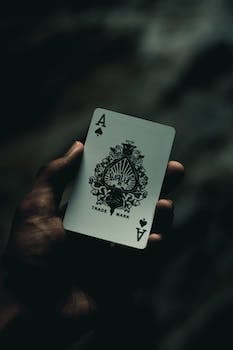Poker is the perfect game for those who enjoy a blend of skill, luck, and mind games. While luck does dictate your hands, we still see poker pros win even with weak hands, thanks to their talent and poker strategy. This often surprises newcomers and leaves them wondering if they, too, can pull that off. This poker guide aims to break down these fundamental skills so beginners can learn them too.
Folding
Perhaps the most underutilized skill by beginner poker players, folding is the best course of action a lot of the time. New players don’t realize that pros only play a small percentage of the hands they are dealt. They sometimes even play upwards of 50% of opening hands which is seldom a good idea. Out of the 169 possible starting hand combinations, only five are considered a must-play: AA, AK (same suit), KK, QK, and JJ. Position also determines the number of hands you should play. A common saying is that beginners should fold around 80% of their starting hands, never going below 50% even with the button, the best seat in poker. Simply playing fewer hands is one of the most crucial poker tips a beginner can receive.

When to fold
When not to fold
Betting
Knowing how to bet correctly is another essential skill in poker. New players often fail to understand when and how much to bet. An excellent way to learn this is to learn the many different poker bets used at other times. A few examples would be:

Position
What new players do not realize is how exactly your position at the table affects your gameplay. Your position directly relates to how many hands you can play and the information you receive about the other players. The difference in playable hands between the worst and best seats is a whopping 35%. While a good rule of thumb is the later you act, the more freedom you have in terms of hands, you will need to know at least some of the best and worst positions to understand how to play from them. Notable positions include:
Under the gun
One of the weakest spots at the table, this seat is first to act pre-flop. Since they make the starting decision with the newly dealt hand, it is best to only play strong hands from here.
Big blind
A special kind of seat, the blinds are usually considered undesirable because of the forced bets they make and the fact they act first post-flop. The big blind has at least a few things going for it. Because of how you have already invested in the pot, you can close the action and move to see the flop for free when the pot remains unraised.
The button
The absolute best seat at the poker table, the button acts third to the last pre-flop and last post-flop. All good players must know how to maximize their profits while being the button. It offers the widest variety of opening hands at around 45%, gives you information about every other player while not giving them information about you, and guarantees you can close the action.

These were some of the primary skills in poker we believe beginners should know to improve. We hope this article gave you a better understanding of how to play poker. If you want to practice, playing poker on online sites like GGPoker, the world’s largest poker room, is a great idea. Sign up on GGPoker so you can play multiple games at once and even use specialized poker software to improve your game.





